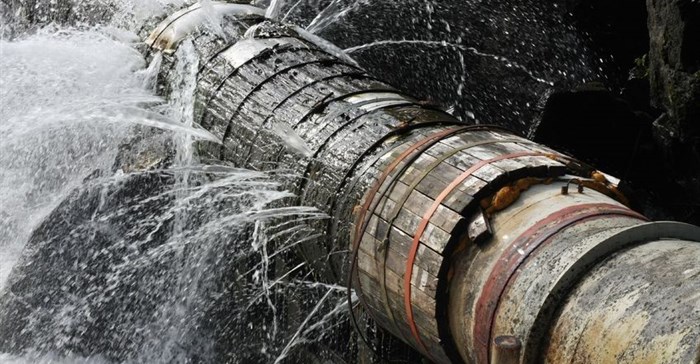Related


Gauteng's illegal boreholes and other water infrastructure woes: What can we do about it?
Danielle van der Vaart and Kiera Bracher 6 Mar 2025




Top stories






More news
















The summit was the first such conference calling for investment in water and sanitation infrastructure, showcasing opportunities in bulk water supply and municipal reticulation.
Mokonyane said the summit was not a call for new policy, but an effort to turn policy into action. "Let’s not reinvent the wheel," she said.
The minister committed her department to restoring the operational integrity of dysfunctional water supply and sanitation, and to provide capacity support to municipalities.
In November, the Department of Water and Sanitation issued warnings to about 30 municipalities that their water supply would be cut off unless they paid their arrears accounts. Local authorities owe the department about R10bn.
The department estimated the investment gap over 10 years would vary from about R330bn considering only new infrastructure, to up to R1tn if all infrastructure maintenance, upgrades and planned initiatives were considered.
"But," said Mokonyane, "there is no new money in the fiscus, [which] means we must introduce a new paradigm of public-private partnerships. The assumption that funding becomes available only through the fiscus must change."
She acknowledged that the government needed to create an enabling environment for investment and that the cost of doing business with the government had to be tackled. She also criticised aspects of the tender system as costly and cumbersome, and emphasised the need to embrace newcomers in the water sector.
Snowy Khoza, the executive chairperson of infrastructure management company Bigen Africa, said SA’s home-grown solution in project funding was the special purpose vehicle developed by the Trans-Caledon Tunnel Authority (TCTA), referring to the trans-border transfer scheme between SA, Lesotho, Namibia and Botswana.
She said money was available, but that the biggest challenge was that project preparation was not being done adequately. "Projects need to be bankable. We need to look at a facility in the Department of Water and Sanitation for project preparation. We do not have this capacity in the public sector.
Investment was not just about money, she said, but also finding the right skills for projects.
TCTA chairperson Zodwa Manase supported this point, saying that "the state simply does not have the skill to handle the kind of megaproject that the country needed", but that it was available in the private sector.
She said R27bn in projects were under way, which meant there was money available, and called on black-owned companies to participate in phase two of the Lesotho Highlands Water Project and acid-mine drainage treatment projects, among others.
She also suggested that municipal capacity could be raised by tapping into engineering skills among retired people.
Mokonyane said the summit was the first in two-step approach and would be followed by a year-long investment stewardship initiative. The medium-term objective was to launch a water and sanitation infrastructure investment strategy by 2019.
Source: BDpro

For more than two decades, I-Net Bridge has been one of South Africa’s preferred electronic providers of innovative solutions, data of the highest calibre, reliable platforms and excellent supporting systems. Our products include workstations, web applications and data feeds packaged with in-depth news and powerful analytical tools empowering clients to make meaningful decisions.
We pride ourselves on our wide variety of in-house skills, encompassing multiple platforms and applications. These skills enable us to not only function as a first class facility, but also design, implement and support all our client needs at a level that confirms I-Net Bridge a leader in its field.
Go to: http://www.inet.co.za